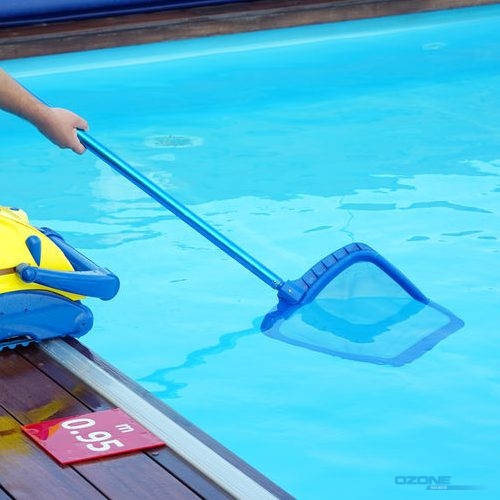
Learn More About Pool Bacteria
In the middle of the summer season, you may be longing to frequent your pool and spas for some recreational fun and relaxation. However, it’s important to realize that water purification is essential in order to not become infected from harmful pool bacteria. There are many types of bacteria out there with health risks to those who venture into the waters. Get to know a little more about pool bacteria to see what can affect you. If you’re wanting to get water purification done to your property’s pools or spas reach out to your local water purification company for more information.
Can you get bacteria from a pool?
Pool water does contain certain pathogens with pool bacteria as well as viruses and protozoa which can cause pool-related sickness and outbreaks. What’s more the blood, skin, mucus, and saliva from infected swimmers can directly contaminate pool water with enough pathogens to cause infections with swimmers who come into contact with it. Feces is also a particular danger with pools as they have a large number of pathogens carried within them.
What diseases can you get from a swimming pool?
Pool water will normally cause recreational water sicknesses (RWIs) most related with diarrhea. The most common of these parasites are with Cryptosporidium. Other RWIs can be given with Giardia, Shigella, the Norovirus, and E.coli. RWIs can cause a wide array of infections which can include gastrointestinal, respiratory, neurological, skin, eye, ear, and wound infections.
Can you get sick from a pool?
Pool water can cause side effects from the chlorine such as with dry skin and hair, red eyes, and creating strong odors. Although chlorine kills some pool bacteria there are others that can get you sick be it through swallowing pool water or having your skin naturally absorb the water.
Are swimming pools bad for your health?
Swimming pools can be bad for your health due to pool bacteria if there isn’t saline, ozone, or structured water filters. Although chlorine can be used to kill bacterias and germs, there are certain things that it will miss. Chlorine can increase the risk of developing allergies and asthma in kids and among adults it can be linked to bladder and rectal cancer as well as increasing the risk of coronary heart disease. Chlorine gets absorbed into the skin so it’s recommended to shower immediately before and after using a swimming pool with chemical-free soap.
Can you get sick from too much chlorine in a pool?
Too much chlorine in a pool can cause sickness and injuries from coughing, rashes, eye irritation, nose and throat pain, and bouts of asthma.
Does chlorine kill bacteria in pools?
Chlorine will kill pool bacteria and germs and will oxidize the organic debris from sweat, body oils, and algae. When added to a pool it forms a weak acid called hypochlorous acid that kills bacteria like salmonella and E.coli. It can kill germs and viruses such as diarrhea and swimmer’s ear. The effectiveness of chlorine will also largely depend on the proper concentration of chlorine in the pool as well as proper pH as the CDC recommends. That being said, there are a few germs that are moderately tolerant of chlorine such as Giardia and Hepitatus A. Cryptosporidium is very chlorine tolerant in turn.

What bacteria can survive chlorine?
- Cryptosporidiosis
- Giardia
- Norovirus
- Toxoplasma gondii
- Hepatitis A
- Legionella
How dirty are swimming pools?
Swimming pools will be exposed to harmful germs, parasites, and other pool bacteria. With improper chlorine and pH levels risks can be worse. Yet even with chlorine, there are better methods of pool cleanliness with ozone and other methods of water purification.
What does an Ozonator do in a pool?
An Ozonator works by injecting ozone gas (O3) into the pool’s plumbing so that the pool’s water contaminants and chlorine resistant microbes are oxidized. An Ozonator will give off electrical energy which will break down oxygen molecules (O2) which will create a chemical reaction where ozone is produced.
Is ozone better than chlorine?
Ozone is considered to be a better option as it will kill the pool bacteria that chlorine would miss. Unlike chlorine is wont leave harmful chlorinated by-products in the water as ozone will speedily revert back to pure oxygen if unused. What’s more, it’s also over 3000 times faster in water purification than chlorine. Lastly, with chemical water treatment, there are some negative long term effects on the environment.
Reach Out to Your Local Water Purification Company For Cleaner Pools & Spas
Pool bacteria can be an issue especially in times such as these. It’s important to get familiar with the different water treatment options out there with your local water purification company in order to maintain a healthier pool or spa environment. Stay safe and eliminate harmful pool bacteria with qualified experts who can purify your waters.
If you’d like to get rid of your pool bacteria in Leander, TX call 800-633-8469 with Ozone Pure Water!
